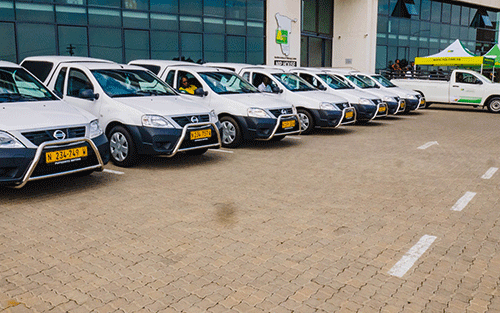The Namibia Institute of Pathology (NIP) has procured 18 new vehicles at a cost of just over N$11 million, which equates to more than N$611 000 per vehicle.
In a statement issued Monday, the institute, which controversially spent N$5.3 million on vehicles for its top five executives last year, stated that this vehicle procurement is a strategic investment in response to challenges faced in specimen transportation.
Responding to New Era, NIP spokesperson Niita Evaristus noted that the 18 new vehicles will be financed over 48 months, inclusive of repairs and maintenance over the financing period.
“With these new vehicles, we aim to streamline our specimen transportation process, reduce transit times, and uphold the integrity of all specimens during transit. Therefore, the NIP recognises the critical importance of efficient and reliable specimen transportation in ensuring the timely and accurate delivery of healthcare services.”
“The delivery of these new vehicles represents a proactive step in the NIP’s commitment to overcome operational challenges, and deliver on its promise of excellence in healthcare support,” stated NIP CEO, Kapena Tjombonde.
She continued: “At the NIP, we are positioning ourselves to better serve the healthcare community, and contribute to the overall improvement of healthcare delivery nationwide. Thus, this significant investment is a testament to our unwavering commitment to enhancing our capabilities and ensuring that the NIP remains at the forefront of the healthcare industry. We are confident that these new vehicles will not only address the challenges we have faced in specimen transportation but also significantly improve the efficiency and reliability of our services”.
Towards the end of last year, frustrated NIP workers demanded bonuses ranging between N$50 000 and N$100 000. These demands, made amidst countrywide protests at NIP sites, emanated from disgruntled employees who claimed each top executive was granted fuel cards worth N$20 000 per month, on top of millions spent on personal vehicles for executives. These vehicles included a Mercedes Benz for the CEO, a Ford Ranger for the chief technical officer, a Nissan for the chief operations officer, a Toyota Fortuner for the chief human capital officer, and a Volkswagen Amarok for the chief financial officer.
Commenting on the exorbitant purchases at that time, Tjombonde described them as an “extension of the fringe benefits”.


